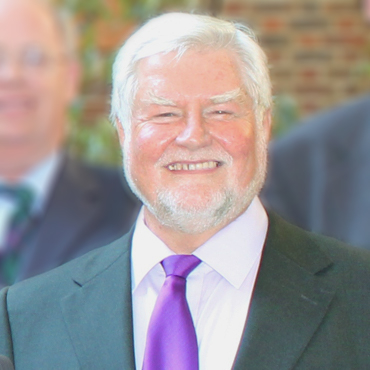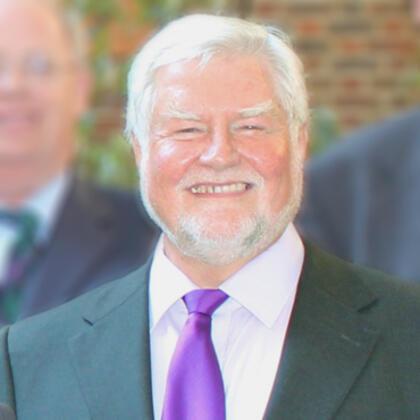Fame and Celebrity
Share
- Details
- Text
- Audio
- Downloads
- Extra Reading
This lecture outlines the modern obsession with 'empty' celebrity and the behaviour of obsessive fans (e.g. stalking). It explores the downsides of fame, including media intrusion, the likely slide towards self-absorption, links with narcissistic personality, burn-out, drug dependency, isolation, divorce, depression and suicide.
Download Text
THE PSYCHOLOGY OF PERFORMANCE: FAME AND CELEBRITY
Dr Glenn D Wilson
(1) FAME AND CELEBRITY
(2 - a,b,c,d,e) Consider these events: Trailor trash air their dirty linen in public on a TV programme such as Jerry Springer. A child dives into a swimming pool screaming 'Mummy, Daddy, look at me!'. Failed actor John Wilkes Booth, living in the shadow of a famous brother, shoots President Lincoln from a theatre box. Britney Spears appears knickerless in public and shaves off all her long blonde hair. What do these have in common? They are all desperate cries of 'I want to be noticed'.
(3) There appears to be a sickness in modern society - that of extolling empty celebrity. Vast amounts of attention (and money) are bestowed upon an increasingly small number of people with a high media profile or a sensational story to tell. The reasons why people are famous have changed over recent decades. Once it was necessary to perform great deeds, win battles, create beautiful art or make world shattering scientific discoveries. Now it may be sufficient to streak in public, smash up a guitar on stage, spit on a reporter, or defecate in the corner of an art gallery calling it 'performance art'.
(4) A good example of empty celebrity is that of Chantelle, the pretty Paris Hilton lookalike who was put into Celebrity Big Brother with instructions to pose as a celebrity. She won the popular vote and of course became a celebrity in the process.
All that matters is media attention, especially on TV or in tabloid newspapers. Weathermen and game show bimbos are familiar to all and feted where-ever they go. Even murderers have their fan clubs (O.J. Simpson for example). The teenager who shot dead eight people in a Nebraska shopping mall wrote in his diary, 'Now I'll be famous'. Thus is distinction between fame and infamy being eroded. Nobel prizewinners, however, are seldom recognized and can eat out unmolested. Members of the royal family who behave themselves are generally ignored.
(5) There is of course a downside to fame. The same media that create the fame of a celebrity can easily become their tormenters. The tabloids like to put people on pedestals only to knock them off again. The term 'feeding frenzy' refers to the phase when the media sniffs scandal that might have widespread appeal. At the very least, the loss of privacy is lamented. Someone once described a celebrity as person who spends the first part of their life seeking fame and the second half wearing dark glasses to avoid being recognized. Celebrities certainly have their problems: they easily become self-obsessed, develop delusions of grandeur and persecution, and have high rates of stress, addiction, divorce and suicide.
There is an ambivalence within the public - devoted fans may turn into dangerous stalkers and many people grovel to celebrities' faces but are scornful and resentful behind their backs. This is partly because celebrities exploit the licence to be boring and boorish. Whilst apologising for being late at a press conference during his prime as a boxer, Chris Eubank noted (with disarming honesty) that he was often late for appointments but 'one day I'll lose - then I'll have to be on time'.
(6) There is a typical cycle in the development of a celebrity. It begins with a build-up of excitement as they become aware of media interest (press conferences, photo shoots, invitations to A-list parties, complimentary clothes dress designers etc.). Soon the descent begins. Strangers treat you as friends, or as the character you portray. You become 'public property'. People have preconceptions about you that they are seeking to confirm. Your private life is scrutinised (George Michael, Hugh Grant) and distorted accounts appear in the media. People start selling stories about their acquaintance with you (perhaps with the help of Max Clifford). If nothing newsworthy is found, it may be just invented. Your own publicist may conspire to promote stories about you ('Freddy Star ate my hamster'). Newspapers like The National Enquirer don't care whether a story is true, so long as they can attribute it to somebody else.
As your personal space is progressively invaded, you become increasing reluctant to appear in public. Then you begin to feel isolated - those around you are sycophants not trusted as real friends and confidants (they may just be after a slice of your cake). Meanwhile, old friends and family are backing off because they can't keep up or regard you as big-headed. According to David Giles (2000) there is often a loss of clear identity known as dispersion of the self, whereby people relate to your many replications rather than to you personally. 'If you have produced thousands of copies of yourself (films, photos, recordings, etc) which replications do people find themselves interacting with?' Is it Daniel Craig they know, or his James Bond persona?
(7) The fans so eagerly sought in the early days of a show business career may become troublesome. The word fan comes from fanaticus, meaning 'one inspired to frenzy by devotion to a deity'. Indeed, there is often religious fervour in the way fans pursue their idol. At the harmless end of the scale they follow their idol around venues, collect autographs and memorabilia, start fan clubs and hang about hotels or backstage hoping to gain a brief chat. At the more destructive end, they imitate the clothing, hairstyles and anti-social behaviour of the idol, and abandon their family, partners, jobs, etc to become full-time 'groupies'. They may stalk, threaten or become violent. A few become really dangerous 'killer nerds', who murder their idol because they want to go down in history beside them (e.g., Mark Chapman/John Lennon). John Hinckley shot Ronald Reagan not out of political conviction but because he wanted to catch the eye of Jodie Foster (with whom he was obsessed).
Dangerous stalkers are usually loners, of low self-esteem, who live vicariously, seeking to partake indirectly of the glamorous life-style of their idol. Often they are ambivalent toward them - simultaneously admiring and envying them. They are especially dangerous if they feel slighted or ignored (the fact that the celebrity is not even aware of their existence may itself be taken as a snub). Research on the question of whether danger signs can be detected in threatening fan mail suggests that inappropriate letters that contain references to specific times and places of proposed encounters, and which attempt to conceal the writer's identity are those which predict a risk of real-life attack (Dietz et al, 1991).
(8) A slide toward self-absorption is common among celebrities. Marilyn Monroe was always late for a shoot, Val Kilmer was reputed to have forbidden film crew and extras from making eye contact with him. Elton John, on his own admission, once called down to reception at The Dorchester asking them to 'stop the wind' because it was disturbing his sleep. It is unclear as to whether this inflated sense of self-importance is something that stars develop or whether it has always been part of their personality. One comedian noted that 'fame hasn't spoilt me - I was always insufferable'. However, some say that 'stars have big heads but fragile egos'. Partly they believe their own publicity, partly they suffer theimposter syndrome (feeling as though they are 'frauds', not really deserving of the accolades heaped upon them). Arrogance, then, might mask insecurity in some instances.
(9) Parallels have been observed between stars obsessed with power and publicity and the psychiatric condition known as narcissistic personality disorder. People diagnosed with NPD present the following traits: (a) they are manipulative in milking others for attention, (b) vindictive to those whom they believe have obstructed, humiliated them or withheld due adulation, (c) superficially boastful but basically insecure, (d) engage in outlandish/self-destructive behaviour in an increasing bid to wrench attention from a 'neglectful' public, (e) need the reactions of others to affirm their own existence ('people are noticing me - therefore I am').
(10) Researchers Young & Pinsky of the University of Southern California gave a standardised test called the Narcissism Personality Inventory to 200 Hollywood celebritieswho appeared on a syndicated radio show and summarised their findings as follows: Actors, comedians, musicians and reality TV contestants were more narcissistic than other celebrities (e.g. politicians) or the public at large. Females were especially high on exhibitionism, manipulativeness, and vanity (three components of overall narcissism). Those with the lowest levels of real-life skill were the most desperately attention-seeking (c.f. David Brent in The Office and Miss Piggy in The Muppets). New-type, empty celebrities (those 'famous for being famous') seemed particularly pressured to behave outrageously in order to maintain attention.
(11) Drug dependency is a problem that is increasingly evident in relation to famous people, perhaps especially with young pop music stars, such as Amy Winehouse and Pete Doherty. (12) Drugs are easily affordable and available in the circles in which they move and party (esp. cocaine). Alcoholism is also rife (one study found that 26% of famous people have alcohol problems compared with 14% of the general population). Some performers believe that drugs assist their creativity, helping them to be zany, original or sparkling or simply to stay awake through late-night sessions. There could be an element of truth in these ideas (Michael Barrymore? Russell Brand?) but the use of drugs is ultimately destructive.
There are alternative theories about why the famous are susceptible to drugs. One is that drugs reproduce the 'high' of performance to which stars become addicted and cannot do without between appearances. Another is that drugs are used to combat chronic self-awareness that comes from constantly facing cameras and general public scrutiny (Schaller, 1997). Others talk in terms of simple 'goodtime oblivion', stress reduction, weight control (amphetamines), pain avoidance and help in sleeping (esp. prescription drugs). Whether or not the drug use begins as recreational or as self-treatment for 'celebrity stresses', it leads usually to a spiral of addiction, with attempts at rehabilitation alternated with relapse (c.f. Betty Ford and Priory Clinics). Among the catalogue of stars whose careers were jeopardised by drugs, prescribed or otherwise, are Marilyn Monroe, Judy Garland, Robert Downey Jnr, Whitney Houston, Boy George, Robbie Williams, Macauley Culkin, Courtney Love, Naomi Campbell, Pete Doherty and Kate Moss.
(13) Epidemiologists at Liverpool John Moores University (2007) reported a study of over 1000 pop/rock musicians. They found exceptionally high rates of early death (3x beyond expectation within the first 5 years of fame. Suicide rates are roughly four times higher among the stars (4.4% against 1% for non-famous people). It has been suggested, with some support, that comedians are at particular risk (e.g., Tony Hancock), perhaps because they often make play of their own deficiencies and might ultimately convince themselves. The idea is that the comedy is a defence mechanism that breaks down from time to time - leaving the comedian badly exposed. Both early death and suicides among the famous in general are often drink or drug-related (Alan Ladd, River Phoenix, Jimi Hendrix, Kurt Cobain). Sometimes they seem to represent a final attention-seeking gesture consistent with a narcissistic or histrionic personality (e.g. the starlet Peg Entwhistle who leapt to her death off the 'H' of the Hollywood sign when her career failed to take off, or Lupe Valez who dressed up in silver lame before taking an overdose but was unfortunately found with her head down the toilet).
(14) Divorce is also rife among famous people. This may be partly because the 'beautiful people' have a high resale value and frequently targeted by others. They may also be jockeying for social advantage, using remarriage to enhance their profile. There is always great interest in the media regarding who is with whom at any point in time. The cynic might say that some marriages are contrived for publicity. (Burton and Taylor were twice married and divorced). Certainly there is no great taboo against divorce in Hollywood, though there is (paradoxically?) a considerable taboo against having affairs whilst still married. Serial polygamy, as typically practised in California, is viewed as a kind of Puritanism in France and the older established European societies, which seem more tolerant of prostitution and extra-marital affairs. Of course, the Hollywood spotlight makes a it great deal more difficult to conceal extracurricular activities and this might help to account for the high rate of marital breakdown. There are also conflicting careers and egos to be considered (Rita Haworth said of Orson Welles: 'When he woke in the morning he expected me to applaud').
(15) Burnout refers to a condition of physical and emotional exhaustion that manifests as progressive resistance against performing previously successful routines. It is most obvious among sports stars where there is intense performance pressure and competition from up and coming younger people. It may occur at any age but classically first appears between 30 and 50. It is experienced as a loss of pleasure and passion in exercising one's skills, leading to withdrawal, self-sabotage and drop-out. Burnout may be masked by alcohol or drugs and so remain undiagnosed. Treatment requires guidance in reorganising life priorities, pacing workloads, avoiding stress and rediscovering variety and creativity (e.g. having musical jam sessions outside of a professional context and quite simply for fun).
(16) If fame is stressful, the loss of fame is even more so. Performers of all kinds need to learn how to fail safe, just as judo experts learn how to fall without hurting themselves or canoeists learn how to right their vessel before setting out the lake. They need to recognize that ups and downs in a career are inevitable, so that a strategy is needed for coping with failure. Most important is a positive attitude toward setbacks, whereby a bad performance or a rejection on one occasion is not viewed as a catastrophe. Cognitive therapists stress that one should focus on the particular incident and not generalise (the error of globalising). We should say to ourselves 'Saturday was a bad night' rather than 'I'll never be able to appear on stage again' (as did Barbra Streisand after one forgetting her words in a live performance). Failure may even be capitalised upon by prompting new directions (e.g., Tommy Cooper's shift from serious magician to comedian using incompetence as his material).
(17) It is important during the acquisition of fame to keep one's feet on the ground. Life changes should not be allowed so quickly that they become overwhelming (after all, change = stress). Change is inevitable as one moves from obscurity to fame but it is important to stagger the rate of that change in order to avoid total disorientation. One should choose advisors (managers, lawyers, accountants, etc) carefully, understanding and doing as much as possible oneself. Family members might seem like obvious choices, especially for child stars, but disputes are likely (Charlotte Church) and there is a danger of fallout with those who are most needed for other, more intimate and important, forms of support. Maintaining the love of close friends and family is a key to stability in the face of celebrity stress.
(18) Contact with reality should be sought and valued. One should expect that the media will discover (or invent) unpleasant things about you - so a thick skin needs to be cultivated. It is a good idea to develop other interests (e.g., relax with sports and hobbies) and to have a Plan B for dealing with life after fame (property investment, restaurants, winery, record company, politics?). It might be necessary to shift focus within one's profession - e.g. shifting from acting to directing or producing. Be prepared ultimately to give up gracefully without humiliating oneself totally (c.f., Norma Desmond in Sunset Boulevard). If all else fails, there is always the autobiography.
Perhaps most importantly, the danger of developing an over-inflated ego, which can alienate you from the world, needs to be recognised and vigorously defended against. One should always be aware that one day the bubble might burst. As the saying goes, 'be nice to those you meet on the way up - you might pass them again on the way down'.
(19) Finally, we might ask - with all the stresses of fame, why is it so actively sought? Of course, it satisfies the inborn need we all have to be noticed and adored. We are naturally social animals who depend upon the support of others for comfort and survival. Fame makes us rich and sexually attractive, and success breed success. Giles (2000) makes the interesting suggestion that fame is a form of immortality - replicating our image being an approximation to replicating our genes. Hence the title song from Fame, 'I want to live forever'. By dumbing down our media (e.g. with reality TV) we have allowed all to aspire to fame, regardless of talent, and celebrity in its purest form consists in being famous for being famous.
(20) Bibliography
Evans, A. and Wilson, G.D. (1999) Fame: The Psychology of Stardom.Vision, London.
Wilson, G.D. (2002) Psychology for Performing Artists (Second Edition). Whurr, London (now part of John Wiley).
Giles, D. (2000) Illusions of Immortality. Macmillan, London.
©Dr Glenn D Wilson, Gresham College, 18 March 2008
Part of:
This event was on Wed, 19 Mar 2008
Support Gresham
Gresham College has offered an outstanding education to the public free of charge for over 400 years. Today, Gresham College plays an important role in fostering a love of learning and a greater understanding of ourselves and the world around us. Your donation will help to widen our reach and to broaden our audience, allowing more people to benefit from a high-quality education from some of the brightest minds.


 Login
Login







